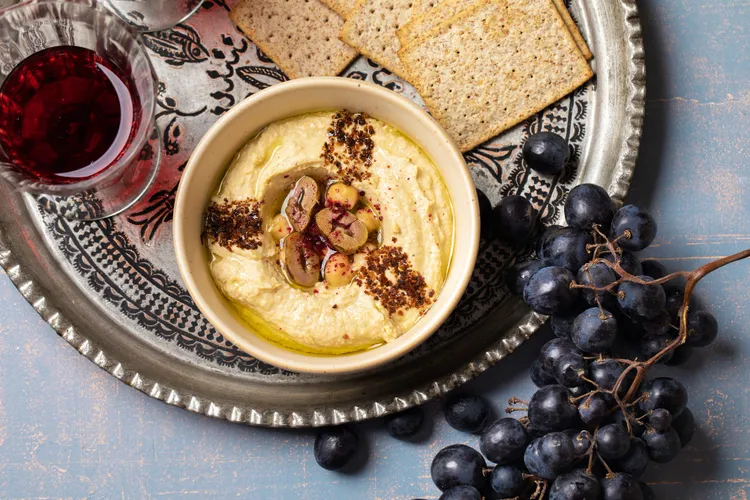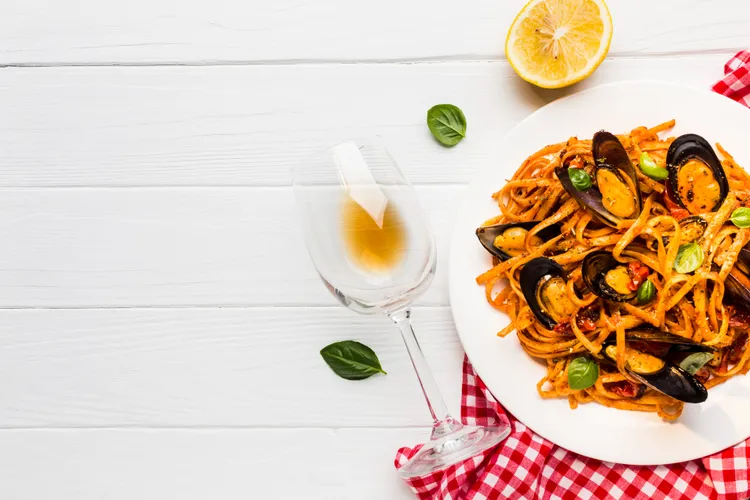Top 15 Foods Highest in Natural Digestive Enzymes: Boost Your Gut Health Naturally
Digestive enzymes are the unsung heroes of your gut, breaking down carbohydrates, proteins, and fats into nutrients your body can absorb. While your pancreas, stomach, and small intestine produce these enzymes, certain foods are naturally rich in enzymes that can enhance digestion, reduce bloating, and support overall gut health. Whether you’re dealing with digestive issues or simply want to optimize nutrient absorption, incorporating enzyme-rich foods into your diet is a game-changer. Let’s unlock the power of these foods for a happier, healthier gut!

What Are Digestive Enzymes?
Digestive enzymes are proteins that break down food into smaller, absorbable molecules. The three main types are:
- Amylase: Breaks down carbohydrates and starches into sugars.
- Protease: Digests proteins into amino acids.
- Lipase: Breaks down fats into fatty acids and glycerol.
Your body produces these enzymes, but factors like stress, aging, or poor diet can reduce enzyme production, leading to bloating, gas, or nutrient deficiencies. Enzyme-rich foods can supplement your body’s efforts, easing digestion and supporting gut health. Let’s explore the top 15 foods packed with these natural digestive aids.
- Pineapple (Bromelain)
Enzyme: Bromelain (protease) Why It Helps: Bromelain, found in pineapple flesh and stems, breaks down proteins, aiding digestion and reducing inflammation. It’s particularly helpful for heavy, protein-rich meals and may alleviate bloating or indigestion.
Science Spotlight: A 2016 study in Biomedical Reports found bromelain improves protein digestion and reduces gut inflammation.
How to Enjoy:
- Add fresh pineapple chunks to smoothies or yogurt.
- Pair with grilled chicken or fish to aid protein digestion.
- Snack on pineapple slices for a sweet, enzyme-packed treat.
Fresh pineapple is best, as canning or cooking destroys bromelain. Aim for 1 cup daily.
- Papaya (Papain)
Enzyme: Papain (protease) Why It Helps: Papain, abundant in ripe papaya, breaks down proteins and supports gut health. It’s often used as a natural remedy for constipation and bloating, and its anti-inflammatory properties may soothe digestive discomfort.
Science Spotlight: A 2018 study in Nutrients showed papain improves protein digestion and reduces symptoms of irritable bowel syndrome (IBS).
How to Enjoy:
- Scoop out fresh papaya for breakfast or a snack.
- Blend into a tropical smoothie with mango and coconut milk.
- Add diced papaya to salads for a sweet-tart kick.
Choose ripe, orange papayas for maximum papain content. Eat 1-2 cups daily.
- Mango (Amylase)
Enzyme: Amylase Why It Helps: Mangoes are rich in amylase, which breaks down starches into simple sugars, easing carbohydrate digestion. As mangoes ripen, amylase levels increase, making them even more effective.
Science Spotlight: Research in Food Chemistry (2017) highlights mango’s high amylase content, supporting efficient starch digestion.
How to Enjoy:
- Slice mango for a standalone snack or dessert.
- Blend into a smoothie with spinach and Greek yogurt.
- Add to salsa with tomatoes and cilantro for a digestive-friendly topping.
Opt for ripe mangoes for higher enzyme activity. Aim for 1 cup daily.
- Kiwi (Actinidin)
Enzyme: Actinidin (protease) Why It Helps: Kiwi contains actinidin, a protease that aids protein digestion, particularly from meats or dairy. It also promotes bowel regularity due to its high fiber content, reducing bloating and constipation.
Science Spotlight: A 2019 study in Journal of Agricultural and Food Chemistry found actinidin enhances protein digestion and gut motility.
How to Enjoy:
- Eat kiwi fresh, scooped with a spoon, after meals.
- Add to fruit salads with berries and pineapple.
- Blend into a green smoothie with kale and banana.
Eat 1-2 kiwis daily, with the skin on for extra fiber (if organic).
- Bananas (Amylase, Glucoamylase)
Enzyme: Amylase, glucoamylase Why It Helps: Bananas contain amylase and glucoamylase, which break down starches and complex sugars. They’re gentle on the stomach, making them ideal for sensitive digestive systems, and their potassium supports gut motility.
Science Spotlight: A 2020 study in Food Science & Nutrition noted bananas’ amylase content aids carbohydrate digestion, especially in ripe fruit.
How to Enjoy:
- Add sliced bananas to oatmeal or yogurt.
- Blend into smoothies with almond butter and spinach.
- Freeze for a creamy, enzyme-rich dessert.
Choose ripe bananas (yellow with brown spots) for higher enzyme content. Eat 1-2 daily.
- Avocado (Lipase)
Enzyme: Lipase Why It Helps: Avocados contain lipase, which helps digest fats, reducing strain on the pancreas and gallbladder. Their healthy fats and fiber also promote satiety and regular bowel movements.
Science Spotlight: Research in Journal of Food Science (2018) confirms avocados’ lipase content supports fat digestion and nutrient absorption.
How to Enjoy:
- Spread avocado on whole-grain toast with a sprinkle of sea salt.
- Add to salads or tacos for creamy texture.
- Blend into a savory smoothie with cucumber and lime.
Include half an avocado daily to support fat digestion and overall gut health.
- Raw Honey (Amylase, Protease, Invertase)
Enzyme: Amylase, protease, invertase Why It Helps: Raw honey contains multiple enzymes that break down starches, proteins, and sugars. Invertase converts sucrose into simpler sugars, easing digestion, while its antimicrobial properties support gut health.
Science Spotlight: A 2017 study in Food Chemistry highlighted raw honey’s enzyme content for improving digestion and gut microbiota.
How to Enjoy:
- Drizzle raw honey on Greek yogurt or fruit.
- Stir into herbal tea (below 104°F to preserve enzymes).
- Use as a natural sweetener in smoothies or oatmeal.
Choose raw, unprocessed honey and limit to 1-2 teaspoons daily to avoid excess sugar.
- Kefir (Lactase, Protease, Lipase)
Enzyme: Lactase, protease, lipase Why It Helps: Kefir, a fermented dairy drink, is rich in enzymes and probiotics that aid digestion of lactose, proteins, and fats. It supports a healthy gut microbiome, reducing bloating and improving nutrient absorption.
Science Spotlight: A 2021 study in Nutrients found kefir’s enzymes and probiotics improve lactose digestion and gut health.
How to Enjoy:
- Drink plain kefir as a breakfast or snack.
- Blend into smoothies with berries and spinach.
- Use as a base for salad dressings or dips.
Aim for 1/2-1 cup daily, choosing unsweetened kefir with live cultures.
- Sauerkraut (Protease, Lipase)
Enzyme: Protease, lipase Why It Helps: Fermented sauerkraut contains enzymes and probiotics that aid protein and fat digestion. Its lactic acid bacteria improve gut flora, reducing inflammation and digestive discomfort.
Science Spotlight: A 2019 study in Frontiers in Microbiology showed fermented foods like sauerkraut enhance digestion and gut health.
How to Enjoy:
- Add sauerkraut to sandwiches or burgers.
- Serve as a side with grilled meats or eggs.
- Mix into salads for a tangy, enzyme-rich crunch.
Choose unpasteurized sauerkraut for live enzymes and aim for 1-2 tablespoons daily.
- Ginger (Zingibain)
Enzyme: Zingibain (protease) Why It Helps: Ginger contains zingibain, a protease that aids protein digestion and reduces bloating. Its anti-inflammatory compounds also soothe the digestive tract, making it ideal for nausea or indigestion.
Science Spotlight: A 2020 study in Journal of Ethnopharmacology found ginger’s enzymes improve gastric motility and reduce digestive discomfort.
How to Enjoy:
- Grate fresh ginger into stir-fries or soups.
- Brew ginger tea with lemon and honey.
- Add to smoothies or juices for a spicy kick.
Use 1-2 teaspoons of fresh ginger daily, adjusting for tolerance.
- Miso (Protease, Amylase, Lipase)
Enzyme: Protease, amylase, lipase Why It Helps: Miso, a fermented soybean paste, contains enzymes that break down proteins, starches, and fats. Its probiotics support gut health, improving digestion and reducing bloating.
Science Spotlight: A 2018 study in Nutrients linked miso consumption to improved gut microbiota and digestion.
How to Enjoy:
- Make miso soup with tofu and seaweed.
- Use as a marinade for fish or vegetables.
- Stir into dressings or sauces for umami flavor.
Choose unpasteurized miso and use 1-2 teaspoons daily, avoiding high heat to preserve enzymes.
- Sprouted Grains (Amylase, Protease)
Enzyme: Amylase, protease Why It Helps: Sprouted grains (like wheat, barley, or spelt) have increased enzyme activity due to germination, aiding starch and protein digestion. They’re also higher in fiber, supporting gut motility.
Science Spotlight: A 2017 study in Journal of Food Science found sprouted grains enhance nutrient bioavailability and digestion.
How to Enjoy:
- Use sprouted grain bread for sandwiches or toast.
- Add sprouted barley to soups or salads.
- Try sprouted grain flour in baking for easier digestion.
Aim for 1-2 servings (e.g., 1 slice of bread or 1/2 cup cooked grains) daily.
- Apples (Amylase, Pectinase)
Enzyme: Amylase, pectinase Why It Helps: Apples contain amylase and pectinase, which break down starches and pectin (a type of fiber), aiding digestion. Their soluble fiber also promotes regular bowel movements and feeds gut bacteria.
Science Spotlight: A 2019 study in Frontiers in Nutrition noted apples’ enzyme and fiber content support digestive health.
How to Enjoy:
- Eat a fresh apple as a snack or post-meal digestive aid.
- Add sliced apples to oatmeal or yogurt.
- Bake with cinnamon for a healthy dessert.
Eat 1 apple daily, with the skin for maximum fiber and enzymes.
- Beets (Betaine)
Enzyme: Betaine (supports digestion) Why It Helps: Beets contain betaine, a compound that supports stomach acid production and protein digestion. Their fiber and antioxidants also reduce inflammation and promote gut health.
Science Spotlight: A 2020 study in Journal of Agricultural and Food Chemistry found betaine improves digestion and gut function.
How to Enjoy:
- Roast beets and add to salads with goat cheese.
- Blend into smoothies with berries and ginger.
- Grate raw beets into slaws for a crunchy side.
Aim for 1/2-1 cup of beets 2-3 times weekly.
- Raw Dairy (Lactase, Lipase, Protease)
Enzyme: Lactase, lipase, protease Why It Helps: Raw dairy (like unpasteurized cheese or milk) contains enzymes that aid lactose, fat, and protein digestion. These enzymes are destroyed in pasteurization, making raw dairy a unique source.
Science Spotlight: A 2018 study in Nutrients noted raw dairy’s enzymes improve lactose tolerance in some individuals.
How to Enjoy:
- Enjoy raw cheese with fruit or crackers.
- Use raw milk in smoothies or coffee (if legal in your area).
- Pair with enzyme-rich fruits like pineapple or papaya.
Check local regulations for raw dairy availability, and consume in moderation (1-2 ounces daily) due to potential risks.
Why Digestive Enzymes Matter
These foods support digestion by:
- Enhancing Nutrient Absorption: Enzymes break down food into absorbable nutrients, maximizing benefits from your diet.
- Reducing Digestive Discomfort: They alleviate bloating, gas, and indigestion by aiding food breakdown.
- Supporting Gut Health: Many enzyme-rich foods (e.g., kefir, sauerkraut) contain fiber or probiotics, promoting a healthy gut microbiome.
- Countering Enzyme Decline: Aging, stress, or poor diet can reduce natural enzyme production, making these foods essential.
Health Benefits of Enzyme-Rich Foods
Incorporating these foods can:
- Improve Digestion: Reduce symptoms of IBS, bloating, or constipation.
- Boost Nutrient Uptake: Enhance absorption of vitamins, minerals, and amino acids.
- Reduce Inflammation: Lower gut inflammation linked to chronic diseases.
- Support Weight Management: Improve satiety and prevent overeating due to poor digestion.
- Enhance Energy: Efficient digestion reduces fatigue caused by nutrient deficiencies.
How to Incorporate These Foods
- Start Small: Add 1-2 enzyme-rich foods daily (e.g., pineapple with lunch, kefir as a snack).
- Pair with Meals: Eat enzyme-rich foods with protein- or carb-heavy meals to aid digestion (e.g., papaya with steak, mango with rice).
- Choose Raw or Minimally Processed: Cooking or processing destroys enzymes, so prioritize fresh or fermented options.
- Balance Macronutrients: Combine with protein, fats, and fiber for optimal digestion (e.g., avocado with eggs and sprouted toast).
- Snack Smart: Keep kiwi, apples, or raw honey on hand for enzyme-packed snacks.
Precautions and Considerations
- Allergies or Sensitivities: Some foods (e.g., dairy, mango) may cause reactions in sensitive individuals. Consult a doctor if unsure.
- Raw Dairy Risks: Raw dairy may carry bacteria like Listeria. Ensure it’s from a trusted source and check local regulations.
- Moderation: Overeating enzyme-rich foods (e.g., pineapple, honey) can lead to excess sugar or calories. Stick to recommended portions.
- Consult a Professional: If you have digestive disorders (e.g., pancreatitis, GERD), work with a dietitian to tailor enzyme intake.
Power Up Your Digestion
Your gut is the gateway to overall health, and enzyme-rich foods like pineapple, kefir, and avocados can supercharge digestion, reduce discomfort, and enhance nutrient absorption. By incorporating these 15 foods into your diet, you’re not just eating - you’re nourishing your body with nature’s digestive aids. Pair these foods with a balanced lifestyle - hydration, exercise, and stress management - for a thriving gut and vibrant health.









